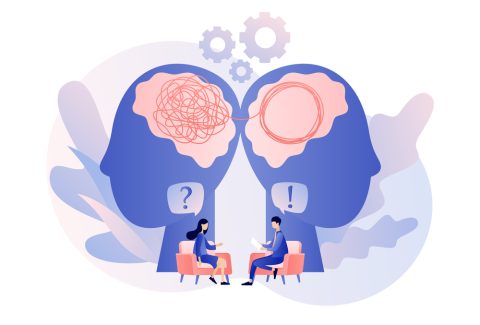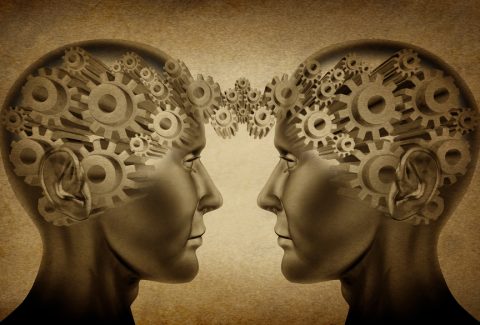The Transformative Landscape of Family Therapy
Introduction:
In the intricate tapestry of human relationships, family stands as a cornerstone, a complex web of interconnections that shape individuals in profound ways. Family therapy, a dynamic and evolving field within mental health, seeks to unravel the threads of family dynamics, fostering understanding, healing, and resilience.[1] This article embarks on a journey into the heart of family therapy, exploring its transformative landscape and the profound impact it has on individuals, couples, and families.
The Essence of Family Therapy: A Holistic Approach to Healing
Family therapy, also known as Systemic Therapy[2], operates on the fundamental principle that individuals are deeply influenced by the dynamics within their family unit. Unlike traditional therapeutic approaches that focus solely on individual experiences, family therapy takes a holistic stance, viewing individuals within the broader context of their familial relationships. It recognizes that addressing the well-being of one member can have cascading effects on the entire family system.
Understanding the Family as a System: Unraveling Interconnected Patterns
At the core of family therapy is the concept of the family as a system—an interconnected network where each member plays a unique role, contributing to the overall functioning of the unit.[3] Therapists in this field carefully examine the intricate patterns of communication, power dynamics, and emotional bonds within the family, aiming to identify both strengths and areas of dysfunction.
Transgenerational Patterns: Exploring the Legacy of Family History
Family therapy delves into transgenerational patterns, recognizing that the experiences and behaviors of previous generations can shape the dynamics of the present. By exploring the historical context of family narratives, therapists help individuals understand how inherited patterns influence their relationships, paving the way for conscious change and intergenerational healing.[4]
The Therapeutic Process: Collaborative Exploration and Discovery
Family therapy unfolds as a collaborative exploration, involving all family members in the therapeutic process. Sessions often provide a safe space for open communication, allowing individuals to express their thoughts, feelings, and concerns.[5] Therapists facilitate dialogue, gently guiding families to identify and address challenges while fostering strengths and resilience.
Interventions and Techniques: Tailoring Approaches to Unique Dynamics
Family therapists employ a diverse array of interventions and techniques[6], tailoring their approach to the unique dynamics of each family. These may include communication skills training, role-playing exercises, genograms, and narrative therapy. The goal is to empower families with practical tools and insights that enhance their ability to navigate challenges and foster positive connections.
The Power of Systemic Change: Ripple Effects Beyond the Therapy Room
One of the distinctive features of family therapy is its potential for systemic change. As individuals within the family system evolve, the ripple effects extend beyond the therapy room. Improved communication, strengthened relationships, and healthier coping mechanisms can positively influence not only the family unit but also each member’s interactions with the broader community.[7]
Family Therapy in Different Contexts: Beyond Traditional Family Units
While the term “family” traditionally evokes thoughts of biological relationships, family therapy extends its reach to diverse contexts. It embraces blended families, LGBTQ+ families, and any group of individuals who share significant emotional bonds.[8] The inclusivity of family therapy reflects its adaptability to the evolving structures of modern relationships.
Cultural Sensitivity: Respecting Diversity in Therapeutic Practices
Family therapists operate with cultural sensitivity, recognizing the diversity of family structures and traditions.[9] By respecting cultural nuances and embracing a client-centered approach, therapists create inclusive spaces that honor and validate the unique experiences of each family.
Conclusion: Orchestrating Harmony in Family Dynamics
In the symphony of human experience, family therapy emerges as a conductor orchestrating harmony within the dynamics of familial relationships. By embracing a systemic perspective, exploring transgenerational patterns, and fostering collaborative discovery, family therapy transcends individual healing, reaching towards a transformative landscape where families flourish, resilience is nurtured, and the echoes of positive change resonate through generations. Family therapy, in essence, is a profound journey towards understanding, healing, and orchestrating the symphony of harmonious family dynamics.
[1] Gurman, Alan S., and David P. Kniskern. Handbook of family therapy. Routledge, 2014.
[2] Stratton, Peter. The evidence base of family therapy and systemic practice. London: Association for Family Therapy and Systemic Practice UK, 2016.
[3] Bales, Robert F., and Talcot Parsons. Family: Socialization and interaction process. routledge, 2014.
[4] Katafiasz, Heather. “Training the Multigenerational Family Therapist.” Couple, Marriage, and Family Therapy Supervision (2015): 199.
[5] Galvin, Kathleen M., Dawn O. Braithwaite, and Carma L. Bylund. Family communication: Cohesion and change. Routledge, 2015.
[6] Varghese, Mathew, Vivek Kirpekar, and Santosh Loganathan. “Family interventions: Basic principles and techniques.” Indian journal of psychiatry 62.Suppl 2 (2020): S192-S200.
[7] Becvar, Raphael J., Dorothy Stroh Becvar, and Lynne V. Reif. Systems theory and family therapy: A primer. Rowman & Littlefield, 2023.
[8] Hudak, Jacqueline, and Shawn V. Giammattei. “Doing family: Decentering heteronormativity in “marriage” and “family” therapy.” Critical topics in family therapy: AFTA monograph series highlights. Cham: Springer International Publishing, 2014. 105-115.
[9] McGoldrick, Monica, et al. “Ethnicity and family therapy.” Handbook of family therapy. Routledge, 2014. 546-582.
[10] Braverman, Lois. “Ackerman Institute for the Family.” Encyclopedia of Couple and Family Therapy (2019): 20-23.
[11] Popovic, M. A. J. A. “Bowen family systems theory.” Marriage and family therapy: A practice-oriented approach (2019): 43-69.
[12] Reiter, Michael D. “Salvador Minuchin, MD: Innovator and Challenger.” Journal of Systemic Therapies 36.4 (2017): 16-22.
[13] Whitaker, Carl A. “The dynamics of the American family as deduced from 20 years of family therapy: The family unconscious.” Evolution Of Psychotherapy. Routledge, 2015. 75-90.







